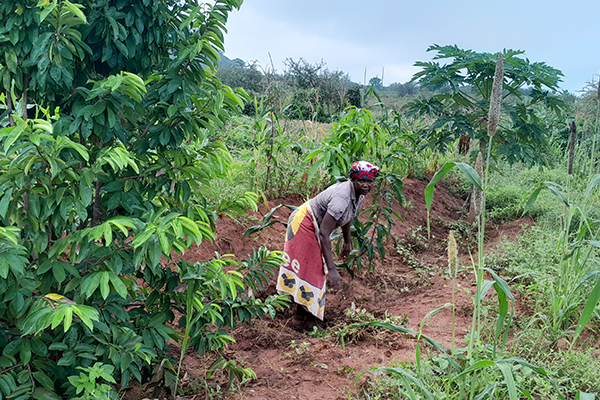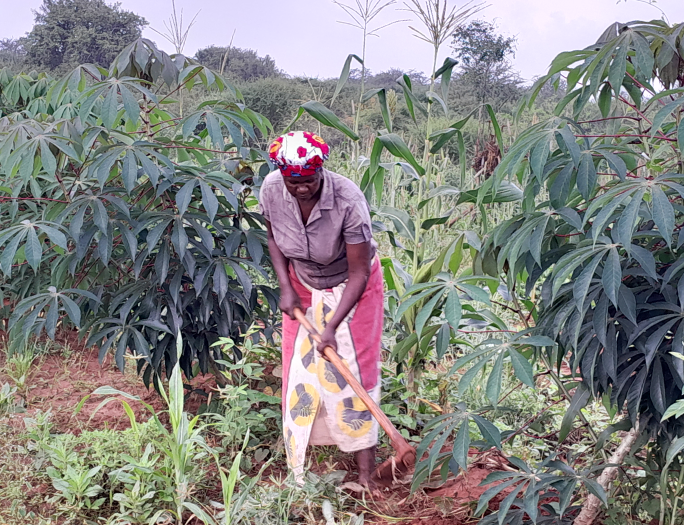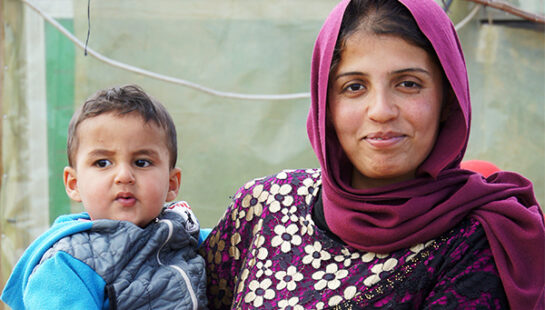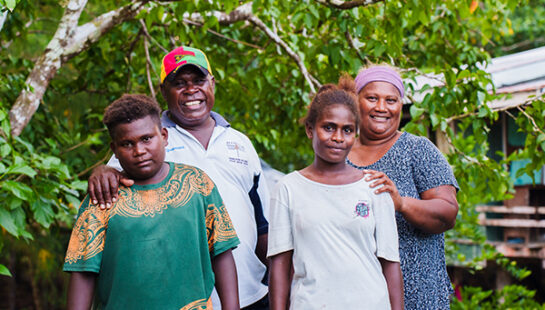In Kenya, 45-year-old Mary cares for her seven children, weaves baskets and tends their crops and animals while her husband Isaac runs a transport business with his motorbike. They thank God for the nourishing food they now grow, and the income they now generate, remembering a time when their life was much harder.
‘For years life was miserable,’ said Mary. ‘We struggled to put food on the table and educate our children as we relied on rainfed agriculture at a time when total crop failure was witnessed due to the erratic nature of rains.’
When It Doesn’t Rain
Recently, East Africa has faced its worst drought in 40 years, and farmers like Mary and Isaac are among the 4.4 million people affected by acute food insecurity.
Lack of water, and knowledge of how to farm in prolonged dry conditions, leads to hunger, sickness, and impacts families for generations—as income must be redirected from things like education into critical, life-sustaining food, water and shelter.
When the rain did come at the end of 2023, it turned into a deluge which caused flooding, landslides, and the destruction of farmland and homes.
Historically, many families in these areas relied on rain-fed agriculture, while others were nomadic or semi-nomadic pastoralists, grazing livestock over wide areas. With rain being less predictable over the past many years, and with other economic pressures, it’s become difficult or impossible for families to support themselves through these means.
Thankfully, our local Christian Partners in Kenya are equipping and training people with the skills to navigate farming under arid or semi-arid conditions. With this support, families are also able to prepare for disasters, such as floods, and survive situations that could devastate them and their livelihoods.
How Are We Helping?
Since each community has different challenges, and our local Partner’s take a strengths-based approach, each solution looks different.
In one area, a group of farmers worked together—with support from our local Partner—to rehabilitate a 400-metre canal that now allows families to access irrigated water and sustain crops. Meanwhile, a different Kenyan community received help to drill boreholes and unlock previously untapped water for farms, kitchen gardens, livestock, and domestic use. Between them, these two initiatives benefited nearly 700 people.
As well as supporting access to water in a number of areas, the project works with farmer groups and individual families to educate and train on drought-tolerant crops, and encourage people to diversify their incomes with activities that require less water.
New Skills And Diversifying Income
For Mary and Isaac, this training transformed their lives. As well as modern agricultural practices, the couple learned which crops bring the best results, and were trained in skills that could be used to supplement their income in case the crops failed. Through our local Christian Partner, Mary joined a savings group and received a manageable loan to get her started in basket weaving and goat raising. She paid back her loan in her first week and then reinvested in the business.
‘I make four baskets in a week, earning me a profit of Kes 11,200 (AUD $130),’ she said.
The savings from the profit earned over time enabled me to purchase six female goats which have now increased to 22 goats over the years.
Not only do goats give nutritious milk, but their manure can be used as a fertiliser to improve crop yields.


Water for Washing
As well as necessary for growing food, caring for animals and drinking, water is essential for sanitation and disease reduction. Our local Christian Partners support training on hygiene and sanitation, with over 650 adults and children in the past year receiving information to help them improve health and reduce disease.
When our Partner checked in with Mary and Isaac’s family in December 2023, they were doing well with enough to eat and sell so that all their needs are met, and their children are happy, healthy and achieving at school. They also have the assurance that if it doesn’t rain, they’ll be okay because basket making and goat raising don’t require a lot of water.



 Sophia Russell,
Sophia Russell,
